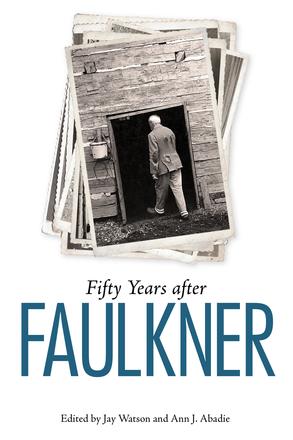
Fifty Years after Faulkner
Essays that reassess Faulkner's life and career a half century after his death
Description
Contributions by Ted Atkinson, Michael P. Bibler, Deborah Clarke, David A. Davis, David M. Earle, Jason D. Fichtel, Elizabeth Fielder, Joseph Fruscione, Matthew Pratt Guterl, Patrick E. Horn, Cheryl Lester, Jessica Martell, Sharon Monteith, Richard C. Moreland, Alan Nadel, Julie Beth Napolin, François Pitavy, Ramón Saldívar, Hortense J. Spillers, Terrell L. Tebbetts, Zackary Vernon, Randall Wilhelm, and Charles Reagan Wilson
These essays examine issues across the wide arc of Faulkner's extraordinary career, from his aesthetic apprenticeship in the visual arts, to late-career engagements with the Cold War, the civil rights movement, and beyond, to the place of death in his artistic vision and the long, varied afterlives he and his writings have enjoyed in literature and popular culture. Contributors deliver stimulating reassessments of Faulkner's first novel, Soldiers' Pay; his final novel, The Reivers; and much of the important work between. Scholars explore how a broad range of elite and lowbrow cultural forms—plantation diaries, phonograph records, pulp magazines—shaped Faulkner's capacious imagination and how his works were translated into such media as film and modern dance. Essays place Faulkner's writings in dialogue with those of fellow twentieth-century authors including W. E. B. Du Bois, Ernest Hemingway, Richard Hall, and Jayne Anne Phillips; locate his work in relation to African American intellectual currents and Global South artistic traditions; and weigh the rewards as well as the risks of dislodging Faulkner from the canonical position he currently occupies.
While Faulkner studies has cultivated an image of the novelist as a neglected genius who toiled in obscurity, a look back fifty years to the final months of the author's life reveals a widely traveled and celebrated artist whose significance was framed in national and international as well as regional terms. Fifty Years after Faulkner bears out that expansive view, reintroducing us to a writer whose work retains its ability to provoke, intrigue, and surprise a variety of readerships.